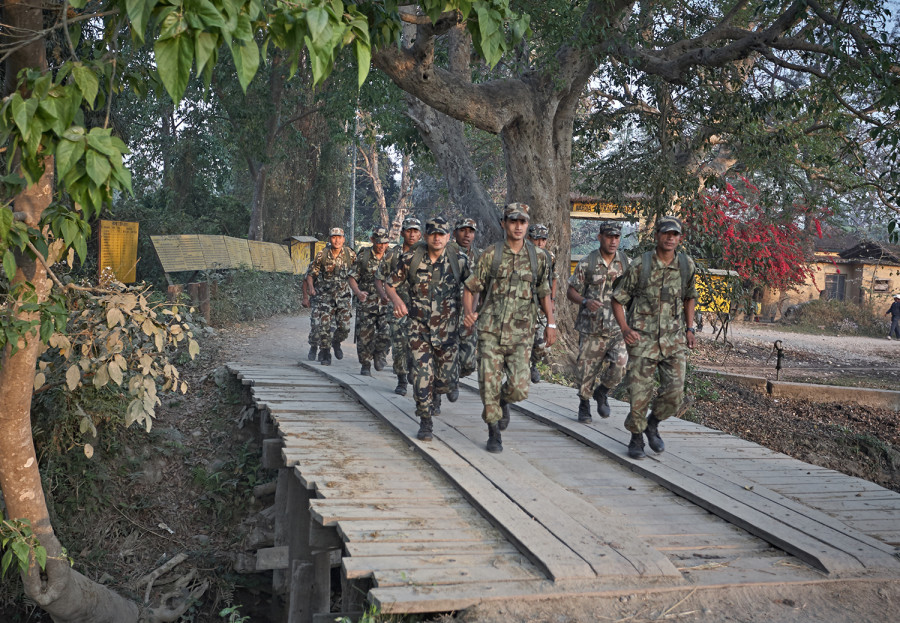Politics
Army expedites action against soldiers who had defected to the Maoists
According to the national defence force, over 450 can face court martial.
Binod Ghimire
The Nepal Army general court-martial on July 25 convicted its former private Bikram Gurung for breaching the Army law by defecting with a rifle and ammunition to join then the CPN-Maoist on August 15, 2007. The Army court sentenced him to 10 years in jail and sent him to an Army prison in Chitwan on July 28.
Gurung, who was serving in the Kati Bahadur Battalion in Hetauda, left the force to join the Maoist party which had come to mainstream politics a few months ago. Gurung, who was into a hotel business at Kalanki, was arrested by the military-police earlier this year. Gurung faced the actions 12 years after defecting the force with arms and ammunition.
He was booked under Clause 51 of the Army Act which says that escaping along with arms and ammunition is taken as an offence of desertion liable to legal action.
The Army has expedited actions against its former officials, who left the force to join the Maoists without resigning, after a Supreme Court ruling that such cases don’t fall under the transitional justice process.
Deciding on the cases filed by former Nepal Army personnel Jhal Kumar Bhagat and Singh Bahadur Shahi, the apex court on July 9 upheld the decision of the Army court, which had convicted two defectors with life-time imprisonment along with the confiscation of property. Challenging the decision of the court-martial, Bhagat and Shahi had filed a writ in the Supreme Court saying that their cases must come under the jurisdiction of the Truth and Reconciliation Commission. A division bench of Justices Anil Kumar Singha and Kumar Regmi, however, annulled their plea clearing the door for the defence force to take action.
Bhagat had fled with two rifles and joined the Maoists in July 2006 while Shahi defected to the Maoist force in January 2005. Military-police had arrested both of them last year.
Nepal Army Spokesperson Brig Gen Bigyan Dev Pandey said there were differences in the jail terms between Gurung and, Bhagat and Shahi, because the former had joined the Maoists after the party shunned violence while the latter defected the force as the Maoists were still waging a war against the state.
Joining the Maoists with the arms, while it was still fighting against the state, was taken as supporting the enemy. Clause 38 of the Act provisions legal action against those who help, directly or indirectly, the enemy by supplying arms, ammunition, explosives, cash, equipment or any other thing.
While three Army personnel defected the force to join the Maoists with arms and ammunition, those joining only in person were 453, according to Pandey. “The Army personnel who defy its law are always under the radar. They can be booked whenever they are arrested,” he told the Post. Some of those who defected the Army are still absconding.
While the Army has taken the Supreme Court verdict as an apt ruling, lawyers say the top court set a wrong precedent. “These purely fall under the ambit of transitional justice,” Satish Mainali, a lawyer who has defended cases related to the insurgency, told the Post. “More such cases will come out if the transitional justice process is further delayed.”
He said it was a paradox that those who led the Maoist insurgency are ruling the country while those who fought for them are facing jail.




 22.17°C Kathmandu
22.17°C Kathmandu















